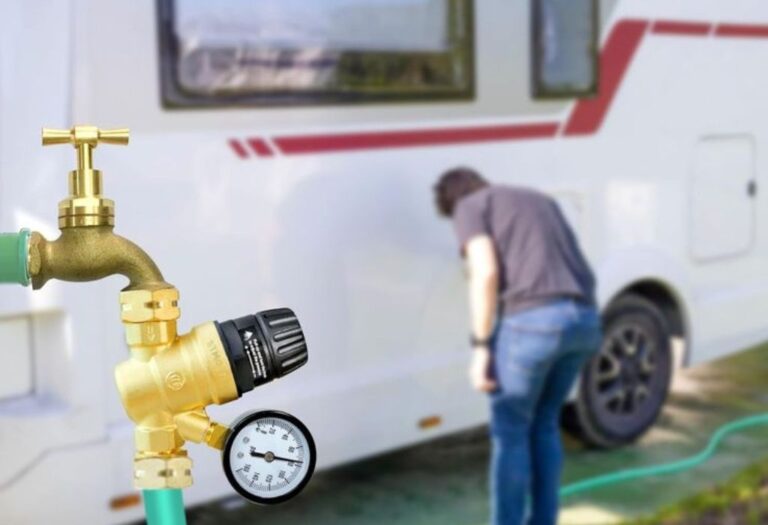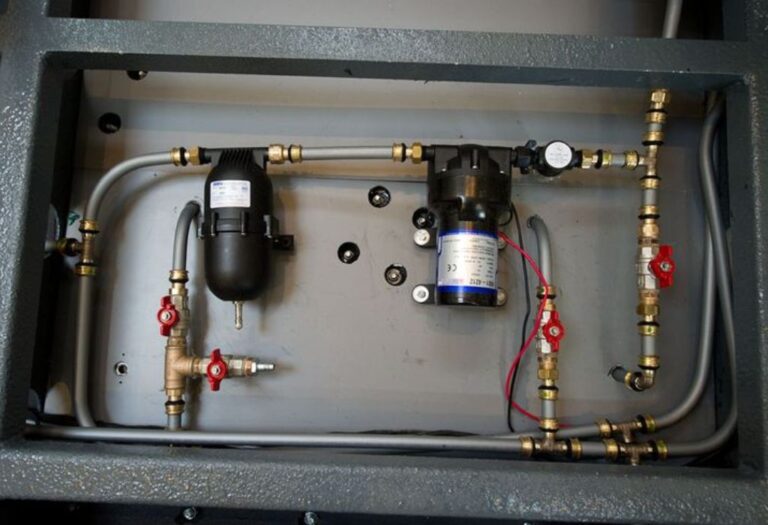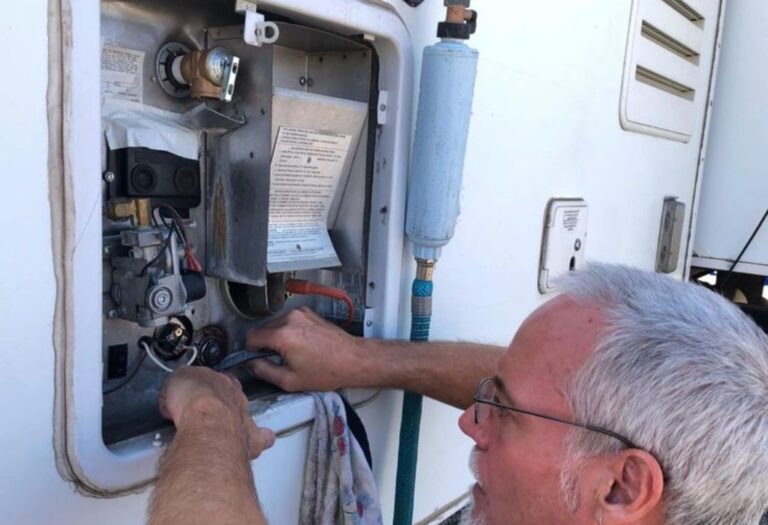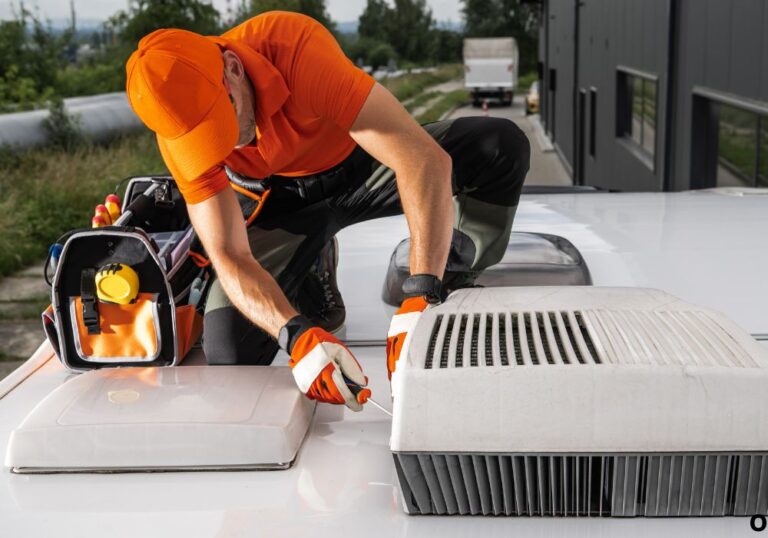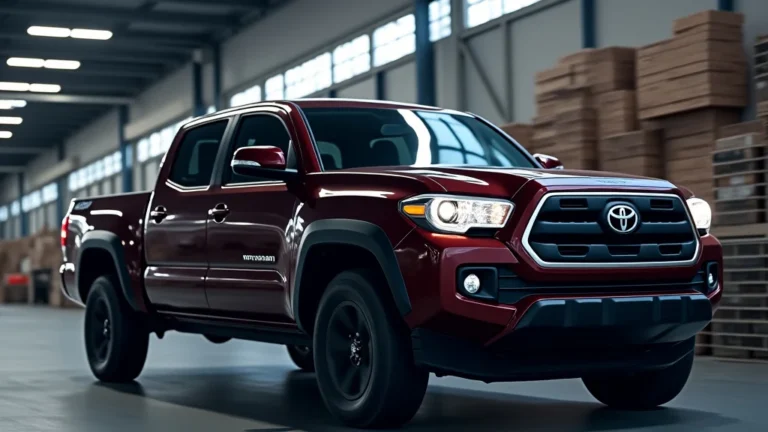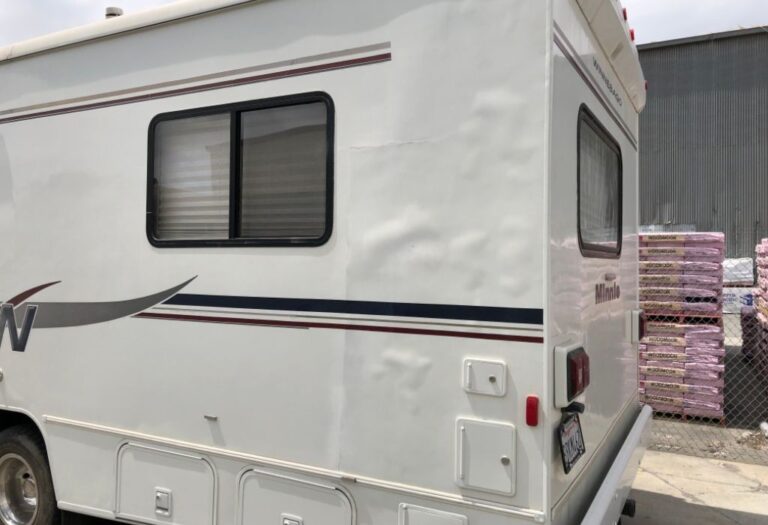Will an RV Fridge Run on Propane Without a Battery?
It’s late at night on a boondocking trip. The lights are dim, and the RV fridge starts flashing warnings just as you’re ready for bed.
The question quickly comes up: will an RV fridge run on propane without a battery?
Many RV owners assume propane means independence from batteries. After all, propane provides the flame for cooling.
Yet most modern RV fridges rely on electricity to control the gas flow and ignition system.
According to Dometic and Norcold manuals, nearly all modern absorption fridges need 12V DC power even when running on propane (Norcold Manual, Dometic 10-Series).
The gas valve, spark igniter, and control board all run on DC. Without it, the fridge will not ignite or stay lit.
There are rare exceptions. Some newer Dometic 10-series models allow stand-alone gas mode using AA batteries for temporary ignition and control.
Older standing-pilot refrigerators also worked without DC power. But these are uncommon in today’s RVs.
This guide explains why RV fridges still need a battery on propane, how much DC power they consume, what exceptions exist, and how to troubleshoot if yours won’t run.
By the end, you’ll know exactly what to expect and how to keep food safe off-grid.
Quick Answer — Can It Run on Propane With No Battery?

Most RV fridges will not run on propane without a battery. They need 12V DC to power the gas valve, control board, and igniter.
A few Dometic 10-series models can run in stand-alone gas mode with AA batteries. Very old standing-pilot fridges could also work without DC. But these are the exceptions.
Will an RV fridge run on propane without a battery?
No, most require 12V DC for ignition and valve operation.
What are the exceptions?
Some Dometic 10-series models and older pilot-light fridges.
Can shore power replace a battery?
Yes, if the converter supplies steady 12V DC.
Do fridges fault at low voltage?
Yes, usually below 10.5–11V.
Can you bypass the DC circuits?
No, it is unsafe and disables safety systems.
Why Most RV Fridges Still Need 12V on Propane
Absorption fridges don’t need electricity for cooling, but they do need it for control functions. The gas valve is a solenoid powered by 12V DC. The igniter sparks electronically. The control board monitors flame and shuts gas off if it’s not detected.
Norcold specifies 10.5–15.4V DC required for safe propane operation. Dometic lists similar requirements. This ensures consistent flame ignition and valve operation.
What parts need 12V power?
The control board, igniter, and gas valve.
Does the flame itself need electricity?
No, propane supplies the flame. Electricity runs safety systems.
Can low DC voltage cause faults?
Yes, below 11V most boards shut down.
Will lights and fans add to the draw?
Yes, they increase power use slightly.
Can a bad fuse stop LP mode?
Yes, if the control board loses its DC feed.
The Edge Cases — AA Packs, Pilots, and Hybrid Systems
Some Dometic 10-series fridges have stand-alone gas mode. They use an AA battery pack to power ignition and controls for 2–3 days. Features like the interior light won’t work, but cooling continues.
Older fridges with manual standing pilots used thermocouples to hold the gas valve open. These could run entirely without DC. However, they are rare today.
If your converter provides 12V while on shore power, the fridge may run even with a dead battery. This depends on your RV’s wiring.
Which fridges use AA packs?
Dometic 10-series in stand-alone mode.
Do Norcolds run without 12V?
No, all modern Norcolds require DC.
Can converters replace a dead battery?
Yes, if they output steady DC voltage.
Do AA packs last long?
Only 2–3 days with limited features.
Can solar power the controls?
Yes, through the battery bank or controller.
How Much 12V Does a Fridge Use on Propane?
Running on propane, the fridge’s DC draw is small. Owners report 0.3–0.6 amps average, or about 7–15 amp-hours per day. This includes the control board and ignition cycles.
With a single Group 27 battery, that’s several days of fridge use if other loads are managed. Adding solar easily offsets this consumption in good sunlight.
How many amp-hours per day?
About 7–15 Ah in propane mode.
What else uses DC power?
Detectors, stereo memory, and lights.
Is one battery enough?
Yes for short trips; more is better for boondocking.
Does pre-cooling help?
Yes, it reduces burner run time.
Do fans increase draw?
Yes, especially aftermarket circulation fans.
60-Second Diagnosis — Why Won’t It Run?

If your fridge won’t run on propane, check DC power first. Measure voltage at the battery and the fridge’s fuse. If it’s below 11V, the board will shut down.
Check propane supply, burner flame, and igniter spark. On shore power, confirm the converter is providing 13.6–14.4V.
No lights on the panel?
Likely no DC reaching the control board.
Clicking but no flame?
Gas supply or igniter issue.
Flame lights then dies?
Flame sensor not signaling correctly.
Works on shore but not off-grid?
Converter is supplying power, not the battery.
Intermittent faults?
Check for loose grounds and wiring.
Safe Workarounds If the Battery Is Dead
If your house battery fails, plug into shore power or run a generator. The converter will supply DC to the fridge’s control board.
For short-term backup, some Dometic models allow an AA battery pack for ignition. Pre-cool on AC before trips and load with cold food to extend cooling.
Can I jump with a car battery?
Yes, safely and with correct polarity.
Should I bypass the gas valve?
No, it’s unsafe and removes protection.
Will solar keep it alive?
Yes, even small panels can supply the control board.
Does DC-DC charging help on the road?
Yes, it keeps the battery topped off while driving.
Should I use 12V heating mode?
Only briefly on 3-way fridges—it drains batteries fast.
Maintenance for Reliable Propane Operation
Keep the burner and flue clean. Check the igniter gap and replace worn wires. Tighten DC connections and clean corrosion.
Annual inspections prevent nuisance shutdowns. Keeping the RV level ensures proper cooling.
How often should burners be serviced?
At least once a year.
Do spider webs block burners?
Yes, they are a common cause of misfires.
How to protect terminals?
Clean and coat with dielectric grease.
Do cooling fans need care?
Yes, clean blades and check airflow.
Why keep the RV level?
Absorption systems rely on gravity to function.
Safety First — Propane and Power
Always ventilate the fridge compartment. Keep detectors tested and propane lines inspected.
Never bypass safety systems. Use only OEM parts when replacing igniters or control boards.
Is it safe while driving?
Follow local laws; some require propane off at fuel stops.
Do I need detectors?
Yes, propane and CO detectors are essential.
Can low voltage damage electronics?
Yes, repeated brownouts stress control boards.
Should the flame be blue?
Yes, yellow flames show blockage.
Are aftermarket parts safe?
Only if they meet OEM specifications.
When to Upgrade or Replace

If the cooling unit works but the board is unreliable, replace the control module. Upgrade to smart converters for steadier DC power.
For heavy boondocking, consider compressor fridges. They run on DC and solar but don’t use propane.
Is a compressor fridge better?
Yes for solar setups, but they use more DC.
Is a new converter worth it?
Yes, it stabilizes power for electronics.
Should I add more solar?
Yes, to cover daily amp-hour use.
Do lithium batteries help?
Yes, they provide steady voltage for controls.
Can I retrofit AA packs?
Only on models designed for them.
Conclusion
So, will an RV fridge run on propane without a battery? For almost all modern RV fridges, the answer is no. They require 12V DC for ignition, flame sensing, and control.
The only exceptions are certain Dometic 10-series units with AA packs and older pilot-light models. For everyone else, a healthy battery or DC supply is essential.
By keeping batteries charged, maintaining propane components, and using solar or shore power when needed, your fridge will keep food safe and cold wherever the road takes you.
I’m David R. Coleman, the founder, lead writer, and lifelong tool enthusiast behind GarageToolPro.com. With years of experience in automotive repair, woodworking, and home DIY projects, I created this platform to share practical tips, detailed tool reviews, and step-by-step guides that help mechanics, hobbyists, and homeowners get the job done right the first time.

